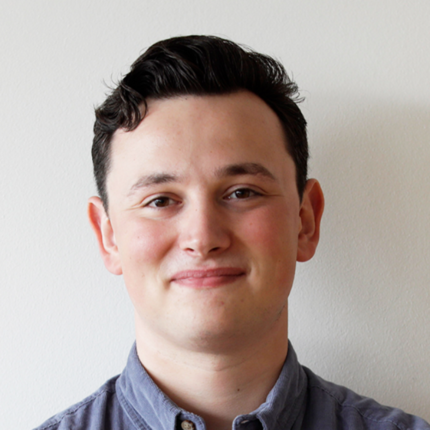As a debate about the number of medical students continues, there is a danger that we forget to consider who ends up on those courses.
And the truth is that the study of medicine has traditionally always been reserved for a select few individuals.
The status quo at medical schools is that admission and success at these courses come far easier to those with access to money, family members in the field, or both.
So in a cost-of-living crisis, it’s now imperative to look at how a system so in need of new doctors is still so heavily weighted toward those that can afford to fund their way through.
How it works
The grades required for Medical School are AAA at a minimum, and very often A*AA or A*A*A.
It has been proven that you are far more likely to achieve if you are privately educated or can afford private tutoring – in 2021 for example, for independent school pupils in England, 70 per cent of A-level results were A* or A, compared with 39 per cent for comprehensive students (you could write a whole thesis on the intricacies of this).
On top of this, within medicine there is an (almost) unspoken rule that you need to enhance your personal statement through work experience if you want to even stand a chance at getting in, but access to this varies dramatically.
If one of your parents or family members is a doctor then it is simply a case of picking a time to come into their workplace, and a quick tick off your admissions checklist. Or if you have the money, you could pay a private company thousands of pounds to go abroad and gain work experience there.
For those whom these are not an option, this step turns into months of spare time lost furiously emailing NHS administration, begging doctors in your GP, or picking up volunteering opportunities to help with something vaguely medical and hoping for the best.
Who you know
If all that wasn’t enough, you then have the entrance exam and interviews – where once again a myriad of courses offering advice and guidance are available if you have the money. Some of these interview courses cost up to £2000 and are even affiliated with some high-level organisations such as the Royal Society of Medicine.
Aware that not all potential applicants can afford these courses endorsed by the Royal Society, many schools are experienced in getting students through to medicine, and so will give mock interviews, UCAT mock exams, and one to one pastoral support on writing your personal statement. While coaching from your biology teacher can be incredibly useful, it doesn’t feel quite as helpful or as glamorous as a week-long residential course.
But, as you might have guessed, if your school is not experienced in getting students into medicine or has the spare resource to support students with the process, then your access to these services is hugely limited, if available at all.
Schools make a difference
Private and grammar schools excel at these services, but is an area where state schools struggle – as they often lack the institutional knowledge or resources to support students in their applications, let alone to encourage and demonstrate to others that this may be a feasible route for “someone like them”.
That means a leg-up to those privileged enough to afford private education and furthers the idea that medicine is a position for an elite few.
The lesson is this – your financial position, your education, and your family are all directly linked to your success in entry to medical school.
All of this provides us with the current status quo. With 11.2 applicants per place in Medicine, it is a significant uphill battle for disadvantaged students looking to apply for medicine.
Most, if not all UK-based medical schools have made sweeping commitments to improving access for students from underprivileged backgrounds looking to get into their medical school, to help level the playing field.
But it doesn’t help that in England, access and participation plans only put pressure on providers at institutional level. That means it’s possible to do badly on access to medicine, or law, or any number of other professions – as long as another department does the heavy lifting. That should surely change.
Schemes to improve things come in various shapes and sizes but follow a pattern – lower grade boundaries where appropriate depending on school and area, local attainment schemes, and alternative entries (via foundation or graduate schemes).
This has been a positive cultural shift within medical education, but there is a glaring elephant in the room that needs to be addressed if we are to see a more diverse set of graduates. Schemes such as this are slowly improving the admission of these students, but what is then being done to retain widening participation students in medicine?
Getting on
Students from disadvantaged backgrounds are often more likely to fail exams, and years of study, and not continue their course. These students are also less likely to receive Merits and Distinctions, when compared to the rest of their cohorts.
Again, if you don’t apply access and participation regulation at subject level, these differences end up hidden.
What is going wrong? Most of the access and participation research that is out there focusses on student characteristics, but that also masks what is happening in particular subjects that have different kinds of student support or costs.
And as disadvantages do not end at the admission stage, the most basic answer on what is going wrong is likely the same as it always has been, money.
To help understand how much all medical students are struggling with finances, let alone those from widening participation backgrounds, I have included a small breakdown of the finances available to you as a student living in London, not with parents.
This includes the Student Finance England Loan (only available for the first 4 years), and the NHS Bursary, which is for the final two years of an Undergraduate Medicine Course.
| Student Finance England | NHS Bursary | |
| Tuition | 9250 | 9250 |
| Non-Means Tested | 3597 | 1000 |
| Means-Tested | 8785 | 3191 |
| Extra Means-Tested Maintenance Loan | 3354 | |
| Max Available to Student: | 12382 | 7545 |
| Min Available to Student: | 3597 | 1000 |
This system is set-up to assume financial assistance from other sources, including parents/guardians, a method that is completely destructive for those where this is not a viable option.
At absolute best, for their final 2 years a student is forced to live on £7500 a year. These years are the most demanding in terms of academic content and travelling full time to placements.
For context, the average price of rent in London now is £1832 a month – even if a student will pay on the lower end of the rent spectrum (let us say for arguments sake, £700 as the flat share average), that still ends up at £8400. Even if a student were on a maximum bursary for the NHS, they would still need to find around £1000 over the year in Part-time jobs to pay just rent.
Once you consider bills, groceries, travelling to your clinical placements (which quickly adds up), as well as being able to have even a slice of a social life, this is not sustainable.
It is no wonder that students with no access to financial help from family have less time to study – with no other source of income this puts medical students underneath the legally defined poverty line.
Medical Students, particularly those in the more vocational clinical years, are being forced to work more and more hours to compensate for this lack of access to finances. Some schools informally stand by their decades-old advice that to succeed within Medicine, and for work to not to have an impact on your studies, a student should not work more than 10 hours in a week.
If a student worked these 10 hours at minimum wage (£9.90, in London) alongside the NHS Bursary, they would still be under the poverty line by around £60 a week. All of this is modelled on a student with access to the Maximum available bursary – many students who also receive no income from their parents will be leagues away from this and will find themselves completely destitute.
And now there’s a cost of living crisis
Now for the last nail in the coffin – the above figures were all taken from before considering the current crisis. The conclusive evidence is that low-income medical students will suffer through this crisis, and yet very little is being done from a political standpoint to assist these students.
Many of these students, the future of our healthcare system and tomorrow’s doctors, will start skipping meals, avoiding going into campus or placement for fear of travel costs, and live in unheated homes.
Despite this, they will be expected to pass their exams, and uphold the same professional standards to qualify as a doctor.
So where do we go from here? Many Medical Schools are preparing for the worst, and are increasing the number of bursaries they give away, but this is simply not enough. Changes need to be made at a systemic level to ensure that no student must suffer through their degree.
The NHS Bursary means well but the fact that it does not reflect the amount received in the Student Loan for the first 4 years is illogical, dangerous, and unfounded. The simplest thing to do would be to change this to have the NHS means-tested system completely reflect the Student Finance students have experienced in Years 1-4.
Alternatively, why not allow 5th and 6th year students access to Student Finance England as an alternative to the NHS Bursary? While it is less than ideal to ask students to take on extra loan, providing them with an option for more financial assistance is imperative to prevent poverty in medical students.













What many medical students do, in addition to radically economising and doing whatever paid work they can find, is to take out bank professional loans and max out their credit card. All of which is an unfair and extremely expensive way of managing now and paying a great deal later.
Yes, but is that through middle/upper class expectations based on how they’ve lived their comfortable lives before? The lower classes with their lower ‘lifestyle’ expectations and thus expenditure do seem to be able to manage better, though lack of access to parental loan guarantees is probably a factor.
Give public transportation passes including trains free to the medical students till one month post their graduation. This passes are renewed at the colleges of Medicine along with their college IDs. I know that this will be huge relief to the students.